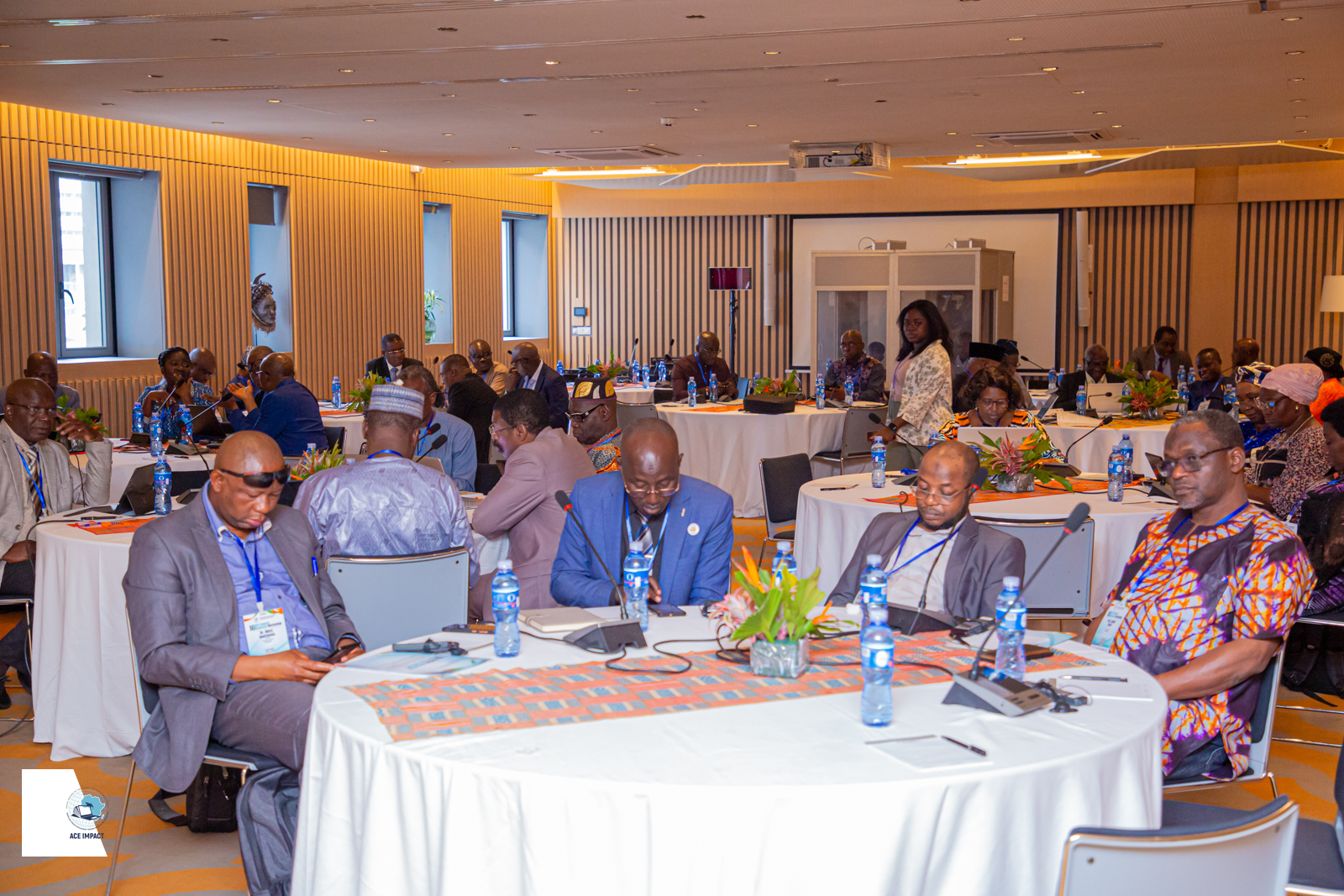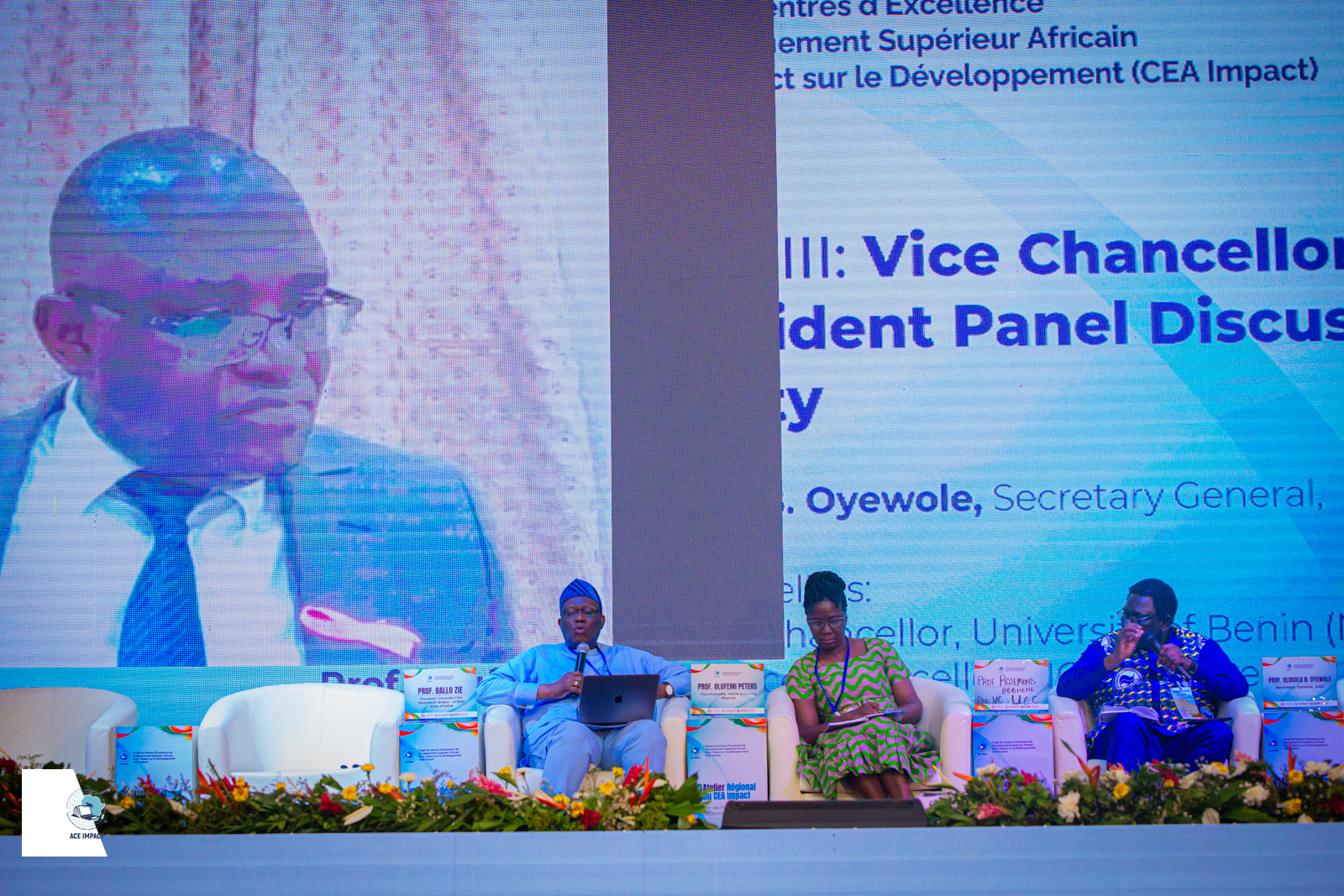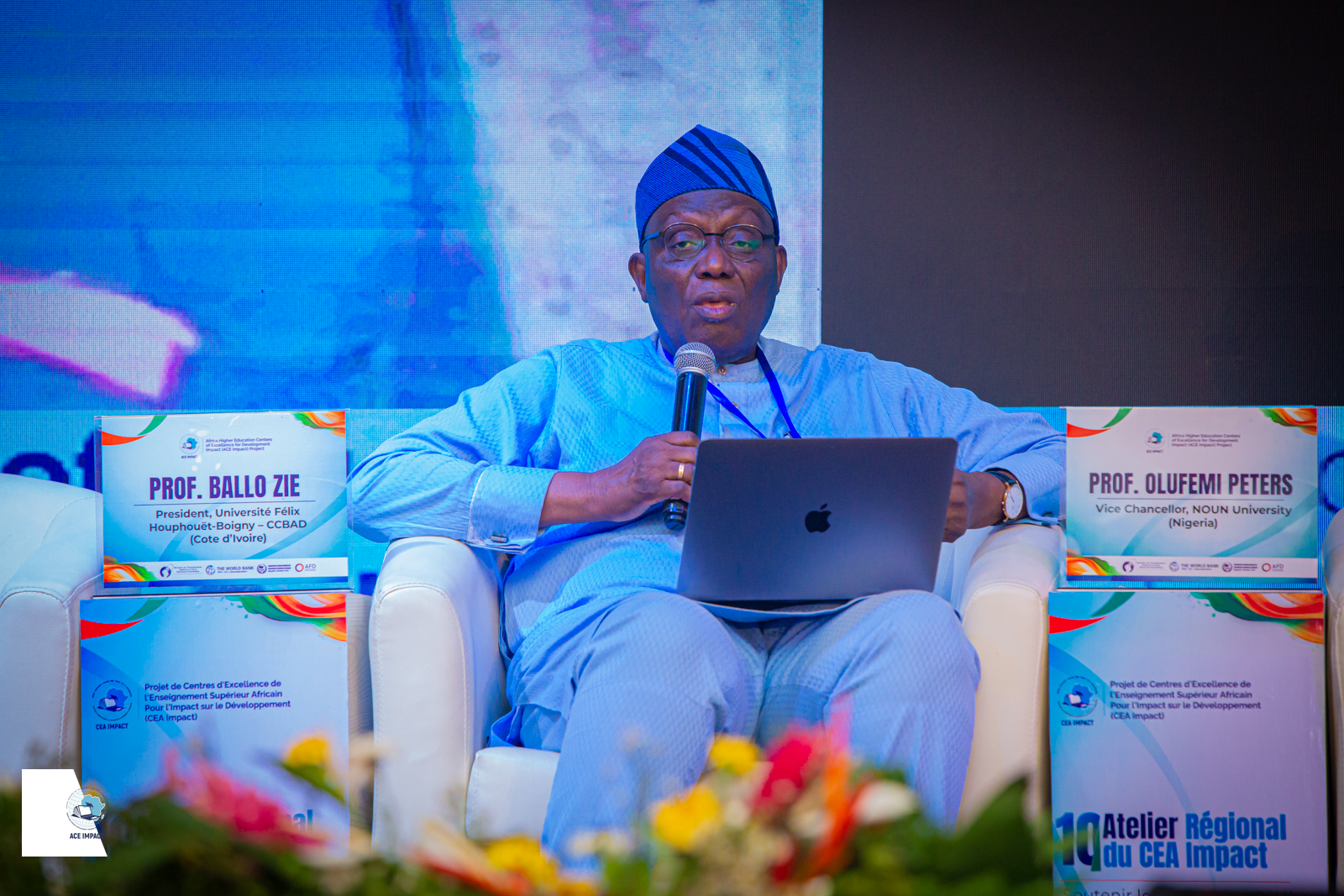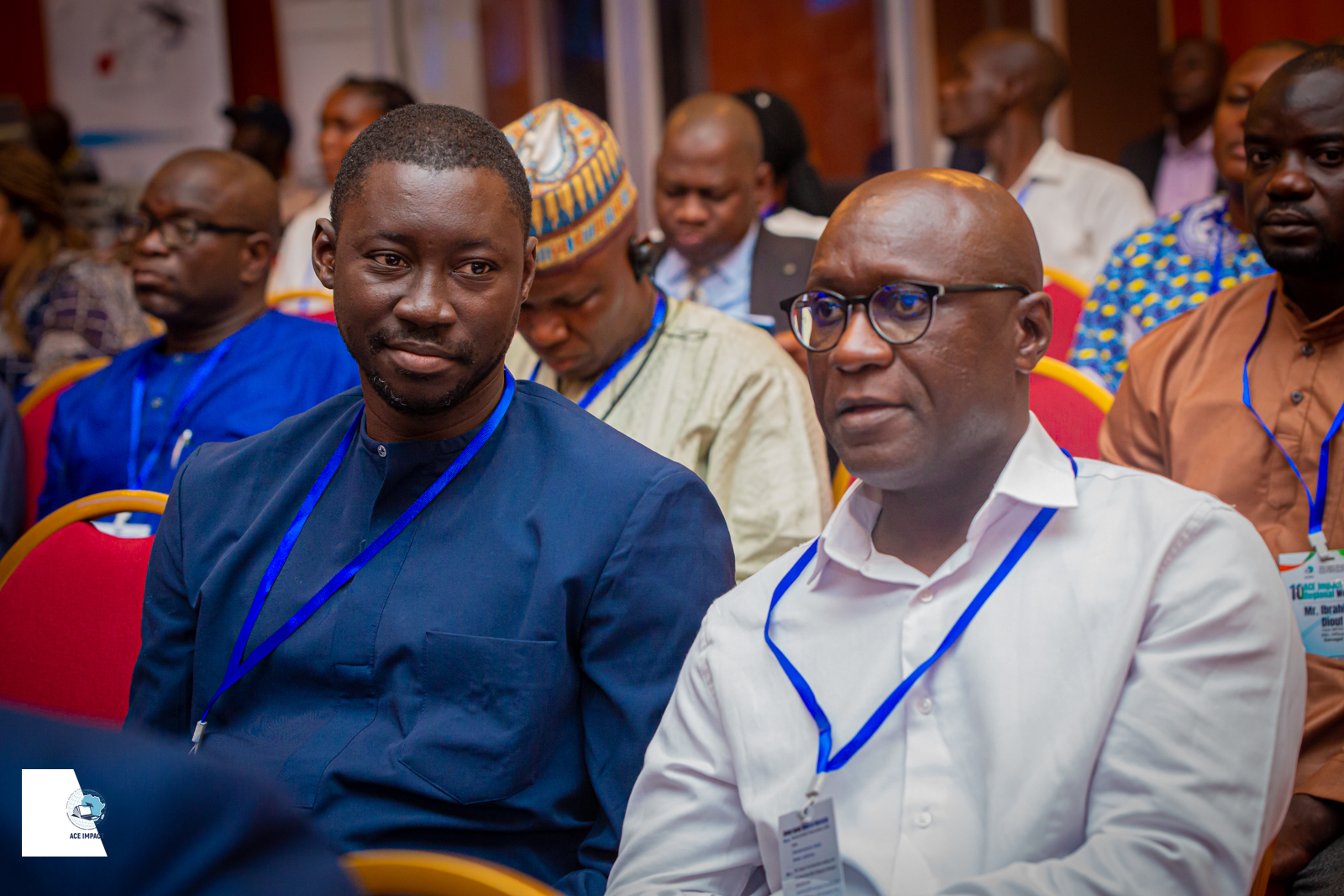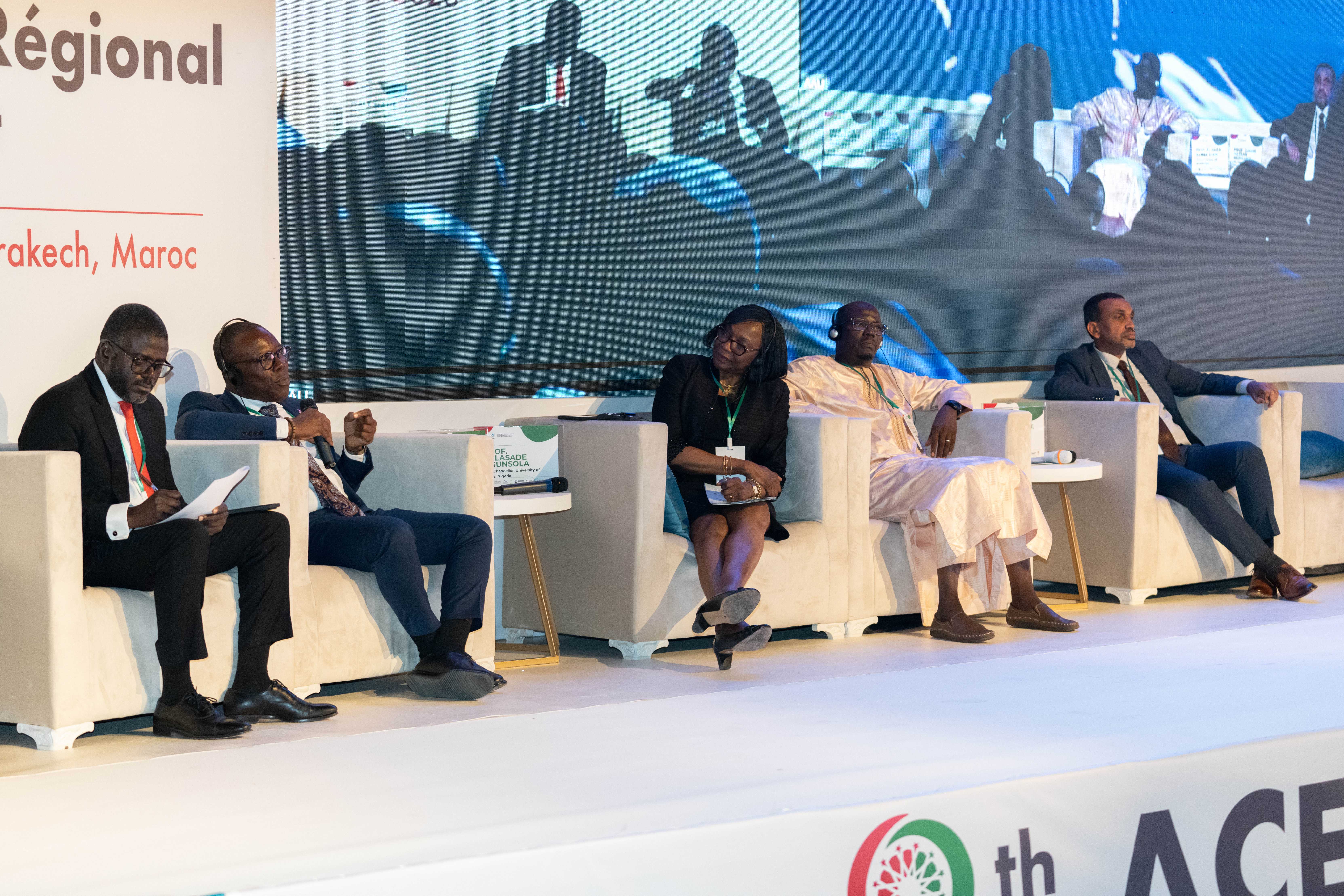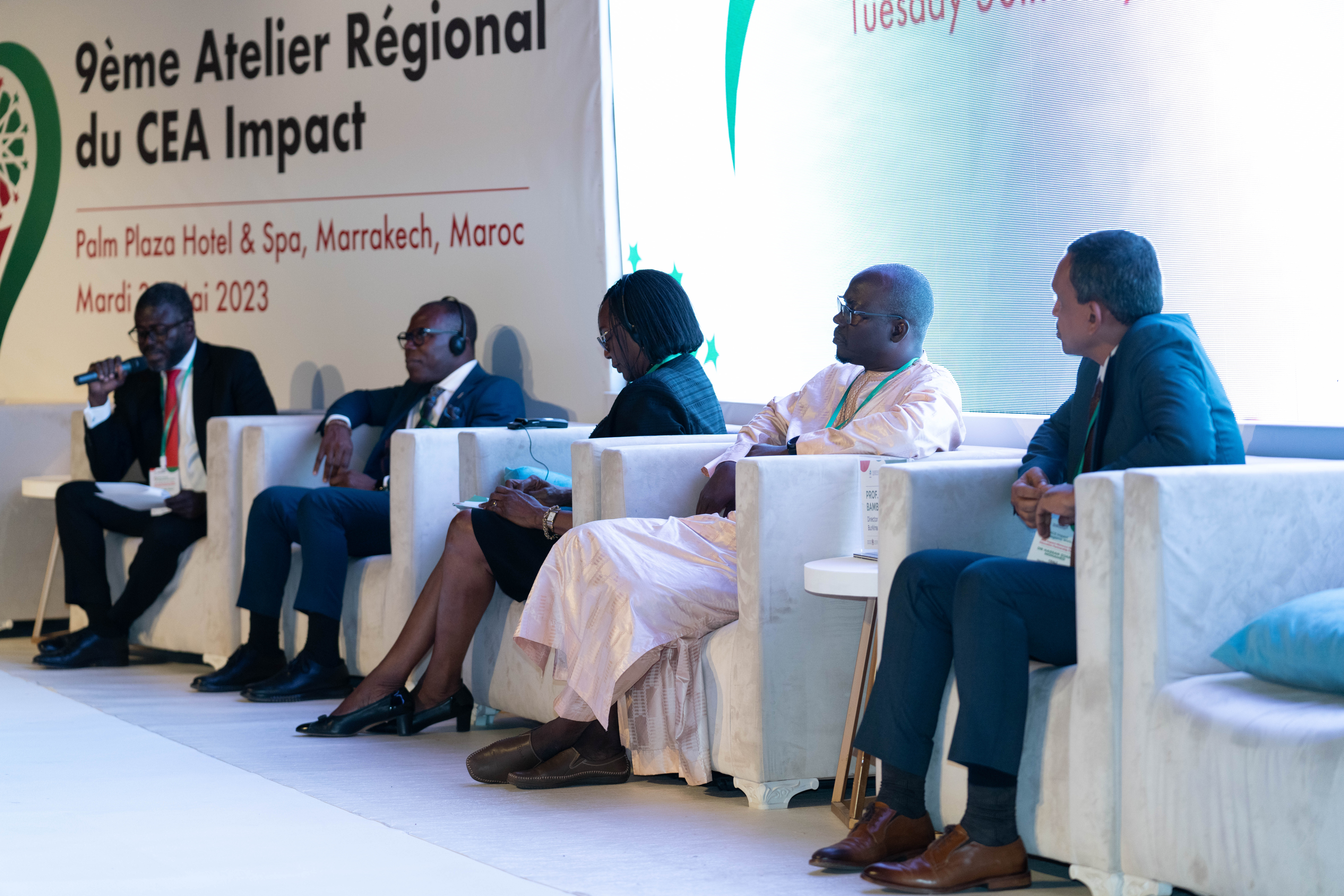Vice Chancellors meet to explore lessons from international accreditation and impact evaluation
On the 1st of November 2023 Eunice Yaa Brimfah Ackwerh the Senior Education Specialist from the World Bank moderated a session for at least 40 Vice Chancellors and DLI7 focal persons to deliberate on key lessons from international accreditation exercises and the recently completed nimble impact evaluation of all the Africa Centres of Excellence – ACE 1, ACE 2 and ACE Impact.
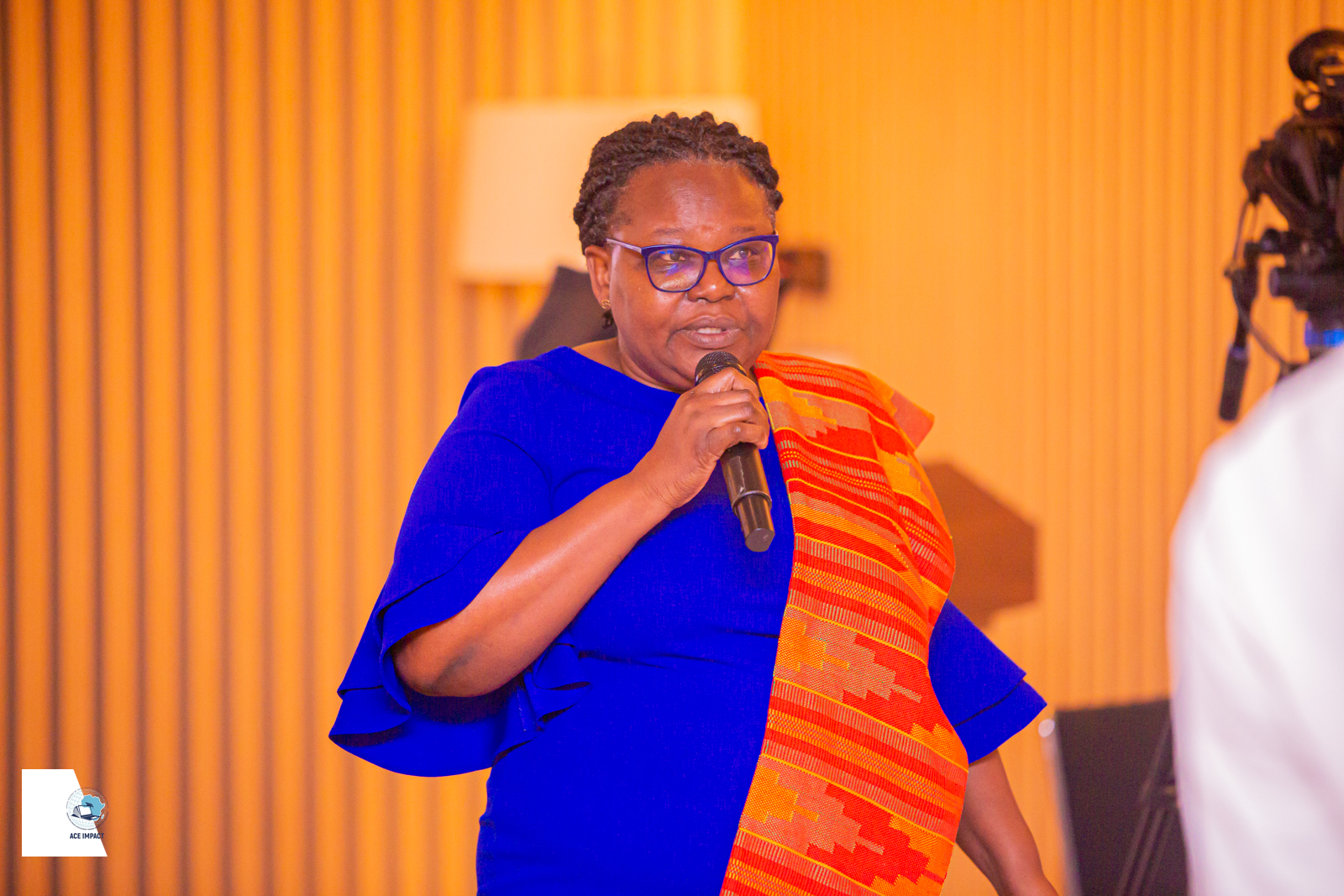
Three organisations dealing with international accreditation participated in this session, the Accreditation Agency for Study Programmes in Engineering, Informatics, Natural Sciences and Mathematics (ASIIN), the High Council for Evaluation of Research and Higher Education (HCERES) and the Quality Assurance Agency for Higher Education (QAA). Dr Zakia Mestari and Dr Pierre Courtellemont represented HCERES virtually, Dr. Iring Wasser from ASIIN attended the meeting in person and Dr Chris Bland from QAA participated virtually.
Lessons learned during the international accreditation processes.
Several important lessons were shared regarding international accreditation processes, and among these, it was emphasized that financial gain from disbursement linked results should not serve as a primary motivation for international accreditation. The motivation must be associated with the vision and strategy of the university to offer internationally accredited programs that facilitate student mobility and attract fee paying students from the region and beyond to ensure the sustainability of ACE Impact Centres.
Dr Iring Wasser conveyed additional insights which included the necessity for universities to engage in comprehensive preparation, the significance of accrediting teams showing cultural sensitivity, the importance of standardizing terminology, the need for universities to showcase ACE Impact Centres on their websites, the value of presenting concise and specific information and not voluminous data, and finally universities’ willingness to embrace innovative teaching methods. The potential to create an African database containing internationally accredited programs and courses was identified. Such a database could serve as an integral part of a legal framework aimed at facilitating students’ mobility not only within Africa, but also on a global scale. The European Ministers of Education have approved a whitelist database of internationally accredited European programs to facilitate academic mobility among European countries.
What is the value of international accreditation?
The Vice Chancellors restated that international accreditation was a key ingredient in building trust in the national accrediting systems because of the global benchmarking. The University of Djibouti Vice Chancellor, Professor Djama Hassan Mohamed, said that his university had benefited from the international accreditation assessment process because it got all the university stakeholders involved. “The international accreditation process enables our students to present their credentials in other countries and empowers us as a university to progress towards maturity in terms of offering high quality programs and services.” – said Professor Djama Hassan Mohamed, the University of Djibouti VC.
Accreditation as a method of sustaining the ACE Impact Centres
International accreditation represents a viable strategy for ACE Impact centres to ensure their sustainability. This is because both institutional and program accreditation enhances the visibility and global recognition and acceptance of universities and programs among students, faculty, potential partners, and funding sources. An institution or program that holds international accreditation is better positioned to generate revenue through its academic and research offerings. There are opportunities for strengthening the relationship between national accreditation agencies and international accreditation agencies – especially around capacity building and keeping abreast of global accreditation trends. Emerging areas of accreditation include the certification of lifelong learning and micro-credentialing.
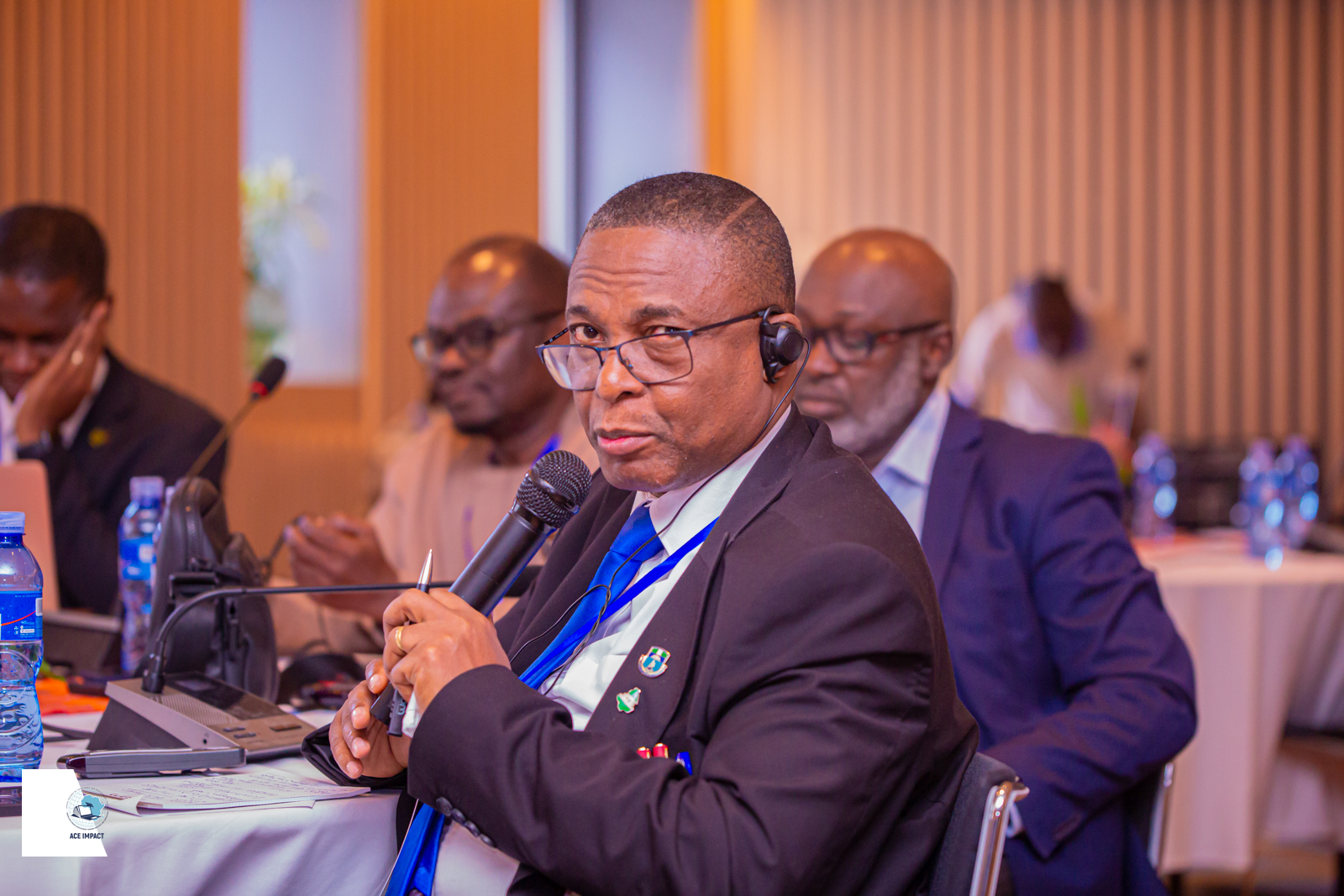
Nimble evaluation of the African Centers of Excellence and the need for long-term sustainability
Dr. Jamil Salmi, a World Bank Higher Education Consultant, led the Vice Chancellors through a reflection on the prospects for the sustainability of the ACE Impact centres and defining strategies for financial sustainability. “Much of the Centres had made impressive progress – sustainability was still a major concern because the majority of the centers operate primarily as project units and lack stable staff complements and durable institutional basis” – cautioned Dr Jamil. He also warned that “the pressure and need to generate resources may cause some centers to compromise their core teaching and research missions”.
Dr Jamil also advised the Vice Chancellors that “sustainability must be viewed as a shared responsibility involving the host institutions, governments, donor community and the ACE Impact centres. All actors must work together, there must be institutional autonomy, financial management must be aligned, and planning is of utmost importance from the outset”, added Dr Jamil.
A vibrant question and answer session followed Dr Jamil’s presentation and the inquiries included what the key characteristics of sustainable Centres were? What must universities do when governments reduced funding to universities that had high revenue generation profiles? What was the ACE Impact program sustainability strategy during the design of the project? Why should academics become business experts when their role is seeking knowledge for knowledge’s sake? Why do we focus on research commercialization and not on engaging the market before commencing in research activities?
The discussions concluded that projects such as the ACE Impact may not always be able to resolve national policies that are not functioning effectively. Instead, university leadership should maintain an ongoing dialogue with a broad spectrum of national stakeholders to address the policy challenges. Solving real industry problems is certainly the way towards arriving at demand driven products and services that would be easily commercialized. Some centers have developed their capacities for revenue generation and that of their host universities – however global experiences demonstrate that we need to take a long-term view of the time needed for the transformation of universities / centers.
